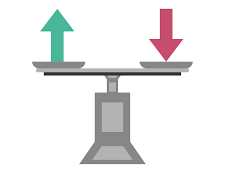
In this section, we will delve into the important topic of creating a realistic budget that effectively balances your income and expenses. Budgeting plays a crucial role in managing your finances and achieving your financial goals. By understanding how to allocate your income and prioritize your expenses, you can gain control over your financial situation.
When it comes to creating a realistic budget, it is essential to consider different perspectives. Let’s explore some insights that can help you in this process:
1. Assess Your Income:
Start by evaluating your sources of income. This can include your salary, freelance work, investments, or any other sources of revenue. Calculate your total monthly income to have a clear understanding of the funds available for budgeting.
2. Track Your Expenses:
It is crucial to track your expenses to identify where your money is going. Categorize your expenses into fixed (e.g., rent, utilities) and variable (e.g., groceries, entertainment). This will help you identify areas where you can potentially cut back or make adjustments.
3. Prioritize Essential Expenses:
Ensure that your budget covers essential expenses such as housing, utilities, transportation, and groceries. These are the necessities that should be allocated first to meet your basic needs.
4. Consider Discretionary Spending:
Discretionary expenses include non-essential items like dining out, entertainment, and hobbies. While it’s important to enjoy life, it’s also crucial to allocate a reasonable amount for discretionary spending within your budget.
5. Set Financial Goals:
Determine your short-term and long-term financial goals. Whether it’s saving for a down payment, paying off debt, or planning for retirement, allocating funds towards your goals will help you stay focused and motivated.
6. Use Budgeting Tools:
Take advantage of budgeting tools and apps that can simplify the process. These tools can help you track your expenses, set spending limits, and provide visual representations of your budget.
7. Review and Adjust Regularly:
Regularly review your budget to ensure it aligns with your financial goals and current circumstances. Life changes, such as a salary increase or unexpected expenses, may require adjustments to your budget.
Remember, creating a realistic budget is an ongoing process that requires diligence and adaptability. By following these insights and incorporating them into your budgeting strategy, you can achieve financial stability and make informed decisions about your money.


